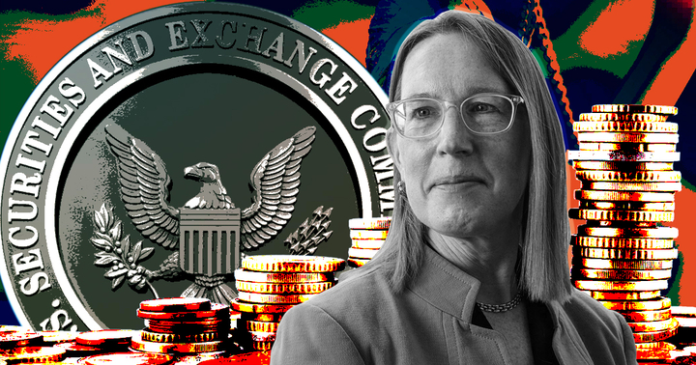The post-mortum on Kraken’s staking enforcement by the SEC has begun.
On Feb. 9, Kraken said it would end its staking service in the U.S. and disclosed paying a $30 million fine to settle allegations of failing to register its staking service as a security offering.
SEC Commissioner Pierce wades in
Crypto-friendly SEC Commissioner Pierce released a statement saying she disagreed with the regulator’s take that the action was a “win for investors.”
The Commissioner questioned whether registering a securities staking product with the SEC was even possible. Expanding on this, she said regulating a staking product opens up several questions, such as:
“Whether the staking program as a whole would be registered or whether each token’s staking program would be separately registered, what the important disclosures what be, and what the accounting implications would be for Kraken.”
Further, Commissioner Pierce blasted the agency’s regulation by enforcement approach, saying the use of enforcement action to tell lay down the law “is not an efficient or fair way of regulating.” She also pointed out that a “cookie-cutter” approach is incorrect, considering the wide variations in staking products.
What now for staking in the U.S.?
Input Output CEO Charles Hoskinson verified Commissioner Pierce’s point, saying:
“There is no canonical definition of what delegation, staking, liquidity, custodianship really means.”
Further, he also mentioned that although Tezos, Cardano, Ethereum, Avalanche, etc., are all “staking systems,” they have very different staking mechanics. In turn, leading to “regulatory overhit” by treating them as the same.
“Some are custodial and non-liquid, others are liquid and non-custodial. Some involve a bonding or slashing mechanism. Others involve no bonding, no slashing mechanism.”
Nonetheless, for now, decentralized services are expected to benefit hugely from the SEC clampdown.
Henry Elder, Head of Decentralised Finance at Wave Financial, called clampdown a gift to DeFi staking protocols such as Lido, Rocket Pool, and StakeWise.
“Their competitive advantage is an innate resistance to regulatory action — something that mattered little in the absence of such action.”
Similarly, Austin Campbell, Professor at Columbia Business School, echoed that view, saying people who wish to stake do at least have the DeFi option. He foresees a jump in DeFi staking activity in the short term.
Credit: Source link























 Bitcoin
Bitcoin  Ethereum
Ethereum  Tether
Tether  Solana
Solana  USDC
USDC  Lido Staked Ether
Lido Staked Ether  XRP
XRP  Dogecoin
Dogecoin  Toncoin
Toncoin  Cardano
Cardano  Shiba Inu
Shiba Inu  Avalanche
Avalanche  TRON
TRON  Wrapped Bitcoin
Wrapped Bitcoin  Bitcoin Cash
Bitcoin Cash  Polkadot
Polkadot  Chainlink
Chainlink  NEAR Protocol
NEAR Protocol  Polygon
Polygon  Litecoin
Litecoin  Internet Computer
Internet Computer  Uniswap
Uniswap  LEO Token
LEO Token  Dai
Dai  First Digital USD
First Digital USD  Ethereum Classic
Ethereum Classic  Aptos
Aptos  Hedera
Hedera  Stacks
Stacks  Mantle
Mantle  Cronos
Cronos  Stellar
Stellar  Cosmos Hub
Cosmos Hub  Filecoin
Filecoin  Renzo Restaked ETH
Renzo Restaked ETH  OKB
OKB  Render
Render  Immutable
Immutable  XT.com
XT.com  Pepe
Pepe  Arbitrum
Arbitrum  Bittensor
Bittensor  Maker
Maker  dogwifhat
dogwifhat  Optimism
Optimism  Wrapped eETH
Wrapped eETH  The Graph
The Graph 
